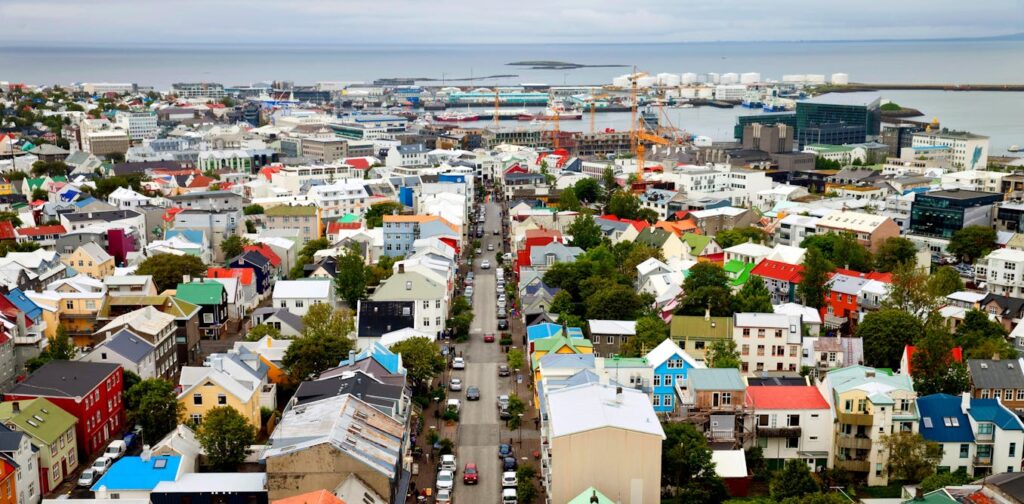Iceland’s largest closed prison, Litla-Hraun, near the Eyrarbakki fishing village.
Konrad Zelazowski|Alamy
Almost half of the open-prison population in Iceland is comprised of foreign nationals. The language during games and watching TV was often English rather than Icelandic.
In the UK, by contrast, the overall figure of foreign nationals is 9.7%. In Ireland, it is 13.8%.
Every foreign prisoner obviously has a unique set of circumstances. However, here I saw patterns in how people were adapting to being imprisoned in a foreign land. Some seem to accept their fate with a certain resignation.
Bruno from southern Europe had been convicted of smuggling cannabis. He used the internet to talk to family. Youtube helped him stay connected to his professional field, as a technician. Alexis, from South America, used Skype to stay in touch with relatives.
These prisoners adjusted to the open prison conditions pretty well. They also realise that in their home countries, life in prison would be considerably harder.
Being imprisoned on a foreign land
For others the experience was different. The prison holds both men and women, and Adele, from western Europe, was outraged at the length of her sentence, which was more than 10 years, despite her cooperation with the police. She felt betrayed and isolated, distrustful of the criminal justice system.
The Icelandic Supreme Court in Reykjavik.
Radharc Images / Alamy
So too Werner, also from western Europe, who felt let down by the system, by his defence lawyer and by the country as a whole. Both Adele and Werner might concede that the open-prison conditions are benign.
However, they remain bewildered by the fact that they are there in the first place as they simply did not expect to be sentenced to years of imprisonment for drug-related crimes.
Some prisoners I spoke with have taken advantage of these benign conditions to carve out a senior role for themselves. Arjan, from western Europe, served as a chef. This is a highly regarded position in the prison and has the added bonus of a weekly trip to the nearby town to go grocery shopping.
Philip too, was a chef and proud of that. The food is often locally sourced, always cooked on site and, crucially, there’s enough to eat.
This stands in stark contrast with many prisons across Europe, where the food – grey, tasteless and usually insufficient – is brought in.
Prisoners like Philip argue that they are mentors for younger prisoners. They cook good food and play an important part in running the prison. They have sought to elevate their status, seeking to place themselves above the Icelandic prisoners, who are often younger, and are closer to the officers, who they find friendly, yet ineffectual although this is not a view shared by all prisoners. For prisoners like Philip, the prison conditions provide an opportunity for status elevation.
While the foreign prisoners I met in Iceland cope to different degrees, they are not suffering the same multiple disadvantages of isolation and deprivation as their counterparts in other western countries.
Few get in-person visits, but they are able to stay in touch with loved ones through internet access. They are able to work or learn. This means they earn substantially more money than prisoners in other countries. They don’t fear bullying or brutality, and they are not segregated from the mainstream.
The prison experience I witnessed is less traumatic and less violating to people’s sense of self. While the pains of imprisonment that Warr discusses are certainly still felt, people’s status as foreign nationals does not exacerbate those pains.
In the interest of fairness and equity, that is an important achievement of Iceland’s open prisons. Other countries, including the UK, would be wise to take note.
Source link : https://theconversation.com/how-iceland-takes-better-care-of-its-foreign-offenders-than-the-rest-of-europe-222002
Author :
Publish date : 2024-02-05 08:00:00
Copyright for syndicated content belongs to the linked Source.
